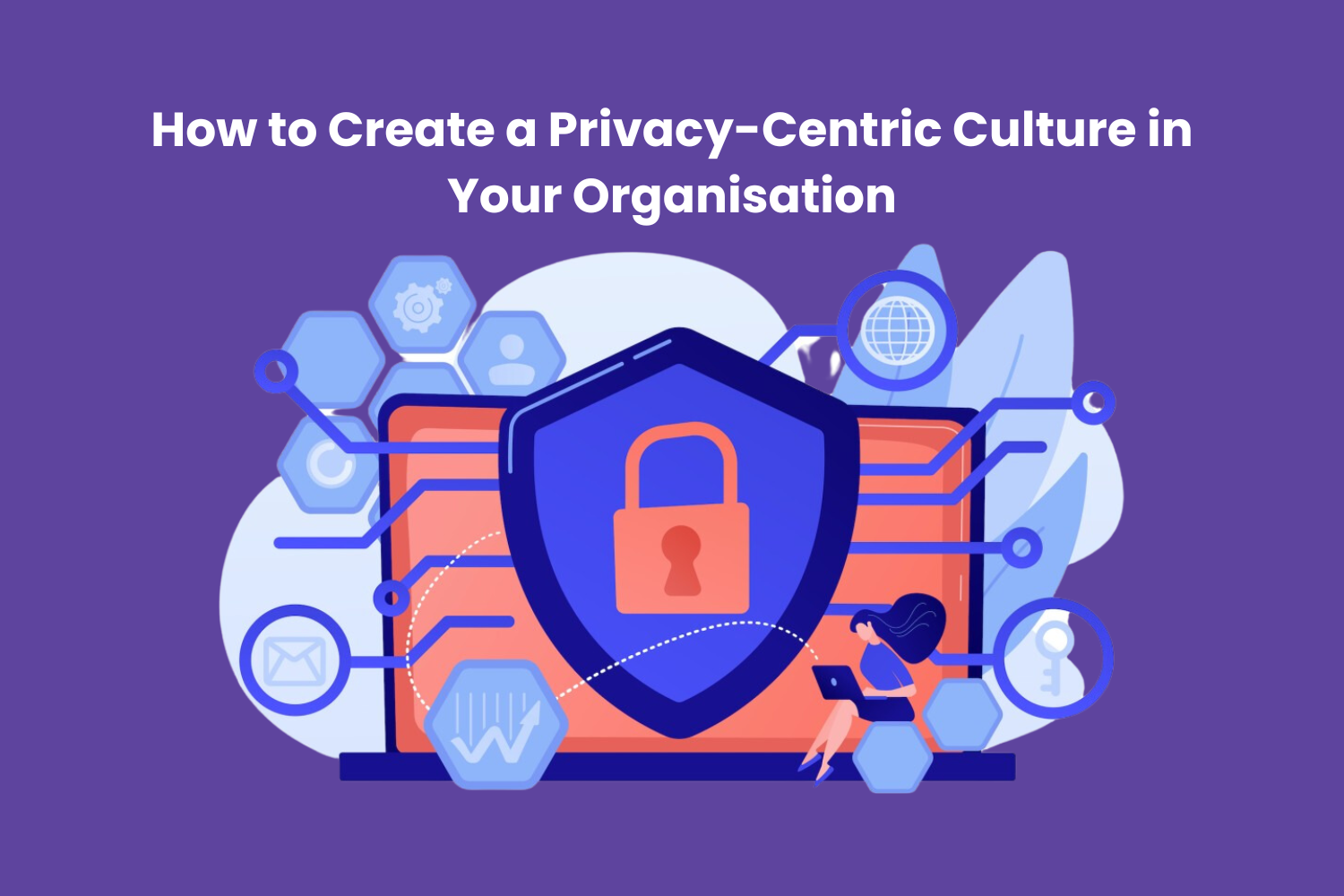Organisations are increasingly being questioned about data privacy and security in the modern world, where data has emerged as a crucial asset. The need to follow data protection laws cannot be overstated, as organisations store, handle, and exchange massive quantities of sensitive data. It won’t be enough to give staff a GDPR Course to take or to do a GDPR Audit once. Fostering a comprehensive, privacy-centric culture inside your firm is the actual problem.
In this blog, we’ll walk you through the procedures for creating such a culture and discuss why it’s so important in the data-driven society we live in today.
Table of Contents
- Understanding Data Protection Laws
- Why a Privacy-Centric Culture Matters
- Protecting Customer Trust
- Avoiding Costly Penalties
- Creating a Privacy-Centric Culture
- Leadership Commitment
- Employee Training
- Clear Policies and Procedures
- Data Mapping
- Data Minimisation
- Regular Audits
- Privacy by Design
- The Role of Technology
- Maintaining a Continuous Learning Curve
- A Privacy-Centric Culture in Action
- Conclusion
Understanding Data Protection Laws
Regulations governing data protection, including the General Data Protection Regulation (GDPR), have changed dramatically in recent years. Global standards for data privacy and security have been established by the European Union’s essential legislative framework, the GDPR. Because of the strict regulations it imposes and the severe penalties for non-compliance, it is crucial that businesses everywhere adapt.
Why a Privacy-Centric Culture Matters
Building trust and protecting your reputation are also important goals when establishing a privacy-centric culture inside your company. Customers are more inclined to use your services if they are confident that their data is handled carefully and respectfully. In a time when data breaches are becoming top news, this trust is priceless.
Protecting Customer Trust
Building trust is a key component of a privacy-centric culture rather than just following the law. Customers are more inclined to use your services if they are sure that their data is handled carefully and respectfully. In a time when data breaches are front-page news, this trust is priceless.
Avoiding Costly Penalties
Data protection regulations include strict financial consequences for violations. Avoiding these financial problems involves doing a thorough GDPR assessment and incorporating GDPR course materials into staff training.
Creating a Privacy-Centric Culture
Let’s now go into the practical measures you can take to create a privacy-centric culture in your company:
Leadership Commitment
Leaders need to set a good example. The security of data must be a top-down priority. Encourage top management to take part in GDPR training to grasp the regulatory environment better.
Employee Training
Spend money on GDPR training for your staff, but don’t stop there. Make sure your personnel are aware of how the rules relate to their specific job responsibilities. This will promote a feeling of group accountability.
Clear Policies and Procedures
Create simple-to-understand data protection rules and processes for your whole firm. Include it in the onboarding procedure and notify staff of any upcoming policy changes on a regular basis.
Data Mapping
The data flows in your company should be mapped. Recognise the locations of data collection, processing, and storage. This information is crucial for maintaining compliance.
Data Minimisation
Only gather the information that is required to run your company. You need to secure less data the less of it you have. This reduces complexity and danger.
Regular Audits
Don’t confine your strategy to a single GDPR audit. You may find compliance gaps with the aid of regular audits and close them. Make it a habit for your business to evaluate its data processes regularly.
Privacy by Design
Include privacy protections in the system and process design. Building data security from the ground up is more efficient than adding it after the fact.
The Role of Technology
Technology is vital to data security in an era when data is at the core of corporate operations. Modern solutions make it simpler for your company to comply with data protection requirements by providing enhanced encryption, access restrictions, and data breach detection.
Maintaining a Continuous Learning Curve
The constantly evolving world of data privacy rules requires organisations to adapt. Maintaining knowledge of the GDPR and associated laws is necessary for this. Everyone stays informed by providing frequent GDPR training and encouraging staff to take part in it.
A Privacy-Centric Culture in Action
Employees are better able to develop a privacy-centric culture inside your company when they are aware of the value of data security and have access to the required resources. This produces a safer environment for data, which in turn improves customer trust and lowers the likelihood of expensive GDPR penalties.
Conclusion
Investing in IT Security & Data Protection Courses is a vital step towards fostering a privacy-centric culture within your organization. It’s important to recognize that this process is not a one-time project, but an ongoing commitment. With dedicated leadership, comprehensive training, clear-cut policies, and the right technology, your firm can thrive in an era where data privacy is paramount. By making data security a core value, you not only ensure compliance with regulatory standards but also gain a competitive edge in an evolving and increasingly private digital landscape.











